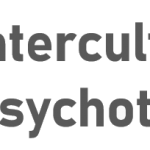Intercultural Psychotherapy
- Home
- Therapies
- Intercultural Psychotherapy
What are the basics
 Our clinic operates under the Intercultural Psychotherapy approach, which recognises societal figures of speech and phrases that trigger ethnic minorities. Cultural contexts as well as culture-specific verbal and nonverbal aspects (i.e. gestures, body language, personal space, etc.) of communication are considered during client interaction.
Our clinic operates under the Intercultural Psychotherapy approach, which recognises societal figures of speech and phrases that trigger ethnic minorities. Cultural contexts as well as culture-specific verbal and nonverbal aspects (i.e. gestures, body language, personal space, etc.) of communication are considered during client interaction.
Awareness of our client’s values and beliefs into the counseling process is our mission. We consider cultural belief systems like spirituality, religion and family-centric issues may in themselves serve as therapeutic vehicles to promote healing for our clients.
Intercultural Psychotherapy also recognises the differences and similarities of various aspects of culture between the client and therapist. Culturally diverse clients often seek to connect with their therapist on a cultural level to enable a deeper level of communication and understanding. It can allow a more effective therapeutic experience for culturally diverse individuals
People from all cultures experience anxiety, depression and worries but how these are perceived and dealt with can vary from culture to culture. It also means the type of help an individual needs can differ from culture to culture where Intercultural Therapy can be beneficial.
In collectivist cultures (Geert Hofstede, 1991) such as China, India and the Middle East, people will typically share their emotional issues, including their extended family members. Most of their decisions are shared with the family, so too their emotional support. In individualistic cultures (Geert Hofstede) such as in Western Europe and the US, people will typically deal very privately or individually with their mental or emotional health and day-to-day decisions.
How does Intercultural Psychotherapy differ?
Intercultural psychotherapy refers to the therapeutic work between psychotherapists and patients who hail from different cultural contexts, which often considerably hampers language- and culture-based understanding.
Clients will typically discuss the same issues in both types of therapies (mainstream and intercultural). However, culturally diverse clients often also discuss some additional issues concerning their race, cultural heritage, identity or language usage in Intercultural Psychotherapy.
Which additional issues do people discuss in Intercultural Psychotherapy?
Culturally diverse clients can often discuss the following issues in sessions – anxieties, depression, worries, abuse, family issues, intimacy, arranged marriage, family pressures, family honour, honour killings, cultural identity, identity crisis, the effects of multicultural and multilingual upbringing, coping with bi-racial identity, loss of mother tongue and mother tongue biases, belonging, language usage, racism, race and ethnicity, mixed-race upbringing, hybrid identity, isolation, acculturation, cultural values, cross-cultural parenting and more.

